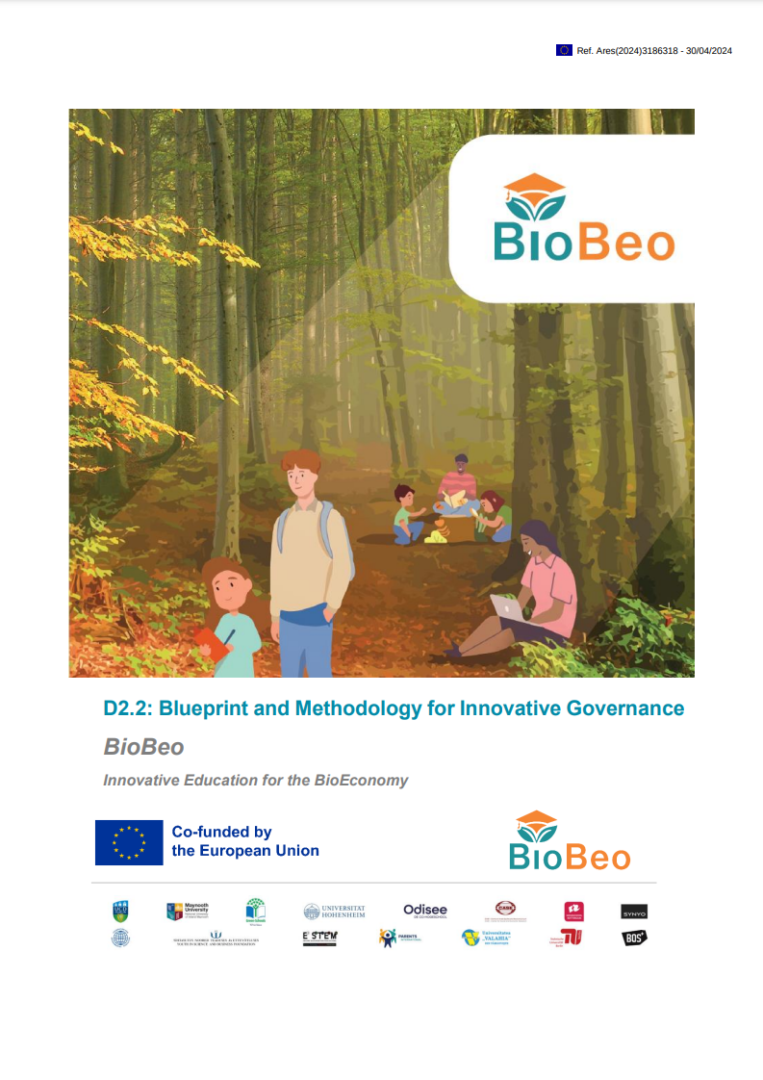 Homepage CASE
Homepage CASE
Selected values

Blueprint and Methodology for Innovative Governance
-

Jan Bazyli Klakla
Dr. Jan Bazyli Klakla holds doctorates in law and sociology from the Jagiellonian University in Krakow, where he also completed studies in law, sociology, and cultural studies, alongside postgraduate studies in international migration at the University of Warsaw. He is currently a Director of Migration, Social Policy, and Development Cooperation at CASE – Center for Social and Economic Research in Warsaw, and a post-doctoral researcher at the Center for Legal Education and Social Theory at the University of Wrocław. Dr. Klakla has been involved in and has led numerous national and European research projects, including those funded by Horizon Europe, Norway Grants, and Polish National Science Center. His work also includes providing consulting and expert services to key European institutions such as the Committee of the Regions, the European Economic and Social Committee, and CEDEFOP (European Centre for the Development of Vocational Training). He has served as an expert in the “Safe Krakow - Security Strategy for Krakow” program. Dr. Klakla is the editor of Law and Culture. Reconceptualization and Case Studies (Springer Nature, 2021) and the author of Law and Acculturation. Conceptualisation and Empirical Case Study: Slavic Migrants in Poland (Palgrave Macmillan, 2024) and Studying in Times of Crisis. Acculturation and Adaptation of Ukrainian Students at Kraków Higher Education Institutions amidst the COVID-19 Pandemic and Russia's Aggression against Ukraine (Brill, 2025). In recognition of his scholarly contributions, he was awarded first prize in the competition of the Association of the Philosophy of Law and Social Philosophy (IVR) – Polish Section for the best doctoral dissertation in the theory and philosophy of law. His research interests span migration, sociology of law, educational research, public policy analysis, customary law, and the methodology of social sciences.
Articles from this author:
- Poland’s Migration Strategy for 2025-2030 – Expert Commentary
-
178th mBank-CASE Seminar Proceedings: Immigration and the Labour Market in Poland
Over the last dozen years Poland became an immigration country. The 178th mBank-CASE Seminar proceedings is devoted to this process - from various perspectives. The data speak for themselves. Immigration provides significant support for the Polish labour market. Poland is facing a rapid population decline. According to projections by the Ministry of Finance in 2022, by 2030 the population of Poland could decrease from the current 37.75 million to 36.6 million, and by 2050 to 34.1 million. The percentage of people of working age will decrease, while the elderly population will increase. Immigration may provide a solution to this problem. In 2022, around 100,000 people from Belarus arrived in Poland, most of them actively participating in the labour market. In addition, there are 1.2 million Ukrainians who stayed in Poland after Russia's invasion of Ukraine. It is therefore necessary to develop a long-term immigration, education and social policy to retain immigrants and integrate them into society and the labour market. This is what eminent experts who have been researching migration processes for years write about in the first two chapters of these Notebooks: Dr Maciej Duszczyk, as well as Dr Agata Górny and Dr Paweł Kaczmarczyk, from the Centre for Migration Research, operating within the University of Warsaw. The third chapter is devoted to the situation of female domestic workers. Table of Contents Ewa Balcerowicz - Introduction p. 5-6 Maciej Duszczyk - Chapter 1: Factors and conditions in Poland’s transformation into an immigration country p. 7-14 Agata Górny, Paweł Kaczmarczyk - Chapter 2: Immigrants and war refugees from Ukraine on the Polish labour market: opportunities and challenges p. 15-33 Jan Bazyli Klakla - Chapter 3: In the Shadows. Ukrainian Domestic Workers in Poland p. 34-44
-
In the Shadows. Ukrainian Domestic Workers in Poland
We are pleased to present our report, “In the Shadows: Ukrainian Domestic Workers in Poland,” developed in collaboration with CARE International, an organization dedicated to fighting poverty and social inequality. The research focuses on a frequently overlooked topic – the domestic sector and excluded female emigrants working as domestic workers. We conducted our study in … Continued
-

Agnieszka Maj
Economist
Agnieszka Maj is an Economist at CASE. She holds an MA degree in International Economic Relations from Cracow University of Economics. Currently, she is obtaining an MA in Gender Studies – Intersectionality and Change at Linköping University. During her education (on both BA and MA levels) she participated in numerous exchange programs at the University … <a href="https://case.dev10.pro/publications/blueprint-and-methodology-for-innovative-governance/">Continued</a>
Articles from this author:
-
Affordable Sustainable Housing in the EU
The study commissioned by the European Economic and Social Committee, examines strategies to address the pressing challenges of housing affordability and sustainability across the EU. It focuses on two key areas: the role of digitalization in the housing sector and the contribution of social economy initiatives. Key findings include: Digitalization's Role: The study highlights how tools like Building Information Modelling (BIM) and AI can streamline planning, improve energy efficiency, and enhance building management. Case studies from Denmark, France, and the Netherlands illustrate successful digital solutions. Social Economy Contributions: Localized, community-oriented housing solutions, like cooperatives and social rental agencies, demonstrate the value of non-profit initiatives in creating affordable, resilient, and sustainable living environments. Examples include projects in Austria, Poland, and Spain. Policy Recommendations: Medium-term goals (by 2030) include harmonizing EU-wide housing policies and integrating digital platforms. Long-term strategies (by 2050) emphasize developing inclusive housing models and leveraging digital innovations. The study concludes that addressing housing issues requires a holistic approach, combining economic, environmental, and social strategies while fostering cooperation among local, national, and EU stakeholders.
-
Natural disasters: anticipatory governance and disaster risk management from a local and regional perspective
Climate change poses a significant challenge across the European Union, with increasing climate-induced hazards threatening ecosystems, economies, and public well-being. Local and Regional Authorities (LRAs) play a crucial role in addressing these risks due to their close connection to affected communities. Effective Climate Change Adaptation (CCA) strategies must be tailored to local needs, yet many regions face challenges like limited resources and expertise. Proactive crisis management, integrated with Disaster Risk Management (DRM), is essential to prevent future crises. By using strategic foresight tools, LRAs can better prepare for risks, allocate resources effectively, and build community resilience. However, challenges remain, including financial constraints, trust issues and ensuring equity for vulnerable groups. To overcome these obstacles, LRAs should focus on inclusive governance, citizen engagement, and data-driven decision-making. As climate hazards intensify, integrating CCA with DRM at the local level will better equip communities to withstand and recover from climate impacts. Collaborative efforts and capacity-building are key to a resilient future.
- How to eradicate skills poverty among the most vulnerable?
-
Affordable Sustainable Housing in the EU
-

Martyna Gliniecka
Martyna Gliniecka holds a PhD in Linguistics, specialising in cross-cultural communication, from the University of Wroclaw. She is awaiting the finalisation of her second PhD in the Culture and Society field from Western Sydney University, Australia. She previously led and participated in research projects in the Young and Resilient Research Centre at Western Sydney University, aiming to better young people’s lives and their resilience in the domains of technology and health. She specialises in qualitative research methods, participatory methodologies, and digital research (e.g., digital ethnography). She is especially interested in online communities and their role in the growing domain of youth digital health.
Articles from this author:
-
Intergenerational Dialogue for the Future of My City
The publication is an educator's guidebook designed to inspire and support discussions between youth and elderly participants about shaping the future of urban environments. Created as part of the "Future for All" project by CASE (Center for Social and Economic Research), this guidebook uses Warsaw as a case study but provides adaptable insights for cities globally. It is funded by the European Economic Area and Norwegian Financial Mechanism (2014–2021). The guidebook delves into critical themes, including: Demography: Addressing the implications of an ageing population, declining birth rates, and migration patterns for urban planning and social cohesion. Migration: Exploring the integration of diverse populations and fostering intercultural and intergenerational understanding. Climate Change: Highlighting urban sustainability through public initiatives like green spaces and waste reduction. Digitalisation: Emphasizing smart city development while bridging the generational digital divide. Central to its approach are intergenerational activities that foster collaboration and mutual understanding, with a focus on scenario planning, problem-solving, and community engagement. This resource equips educators with tools to promote critical thinking and inclusivity, encouraging young and older citizens alike to actively shape resilient and sustainable urban communities.
- The EU regional policy and regional policy challenges in Czech Republic, Hungary, Poland, Slovak Republic, Montenegro and Serbia
-
Rural areas and the geography of discontent
This study applies a rural-urban lens to the outcomes of recent national and subnational elections of European Union (EU) Member States, with the aim of analysing Eurosceptic (anti-EU values) voting patterns and identifying possible explanations for voter discontent in rural areas. Findings show high Eurosceptic voting in many rural areas across the EU. At … Continued
-
Intergenerational Dialogue for the Future of My City
Related publications
Thanks for joining us!
You're now part of a community that values [your newsletter's focus]. Get ready to stay informed, inspired, and engaged with our carefully curated content.
